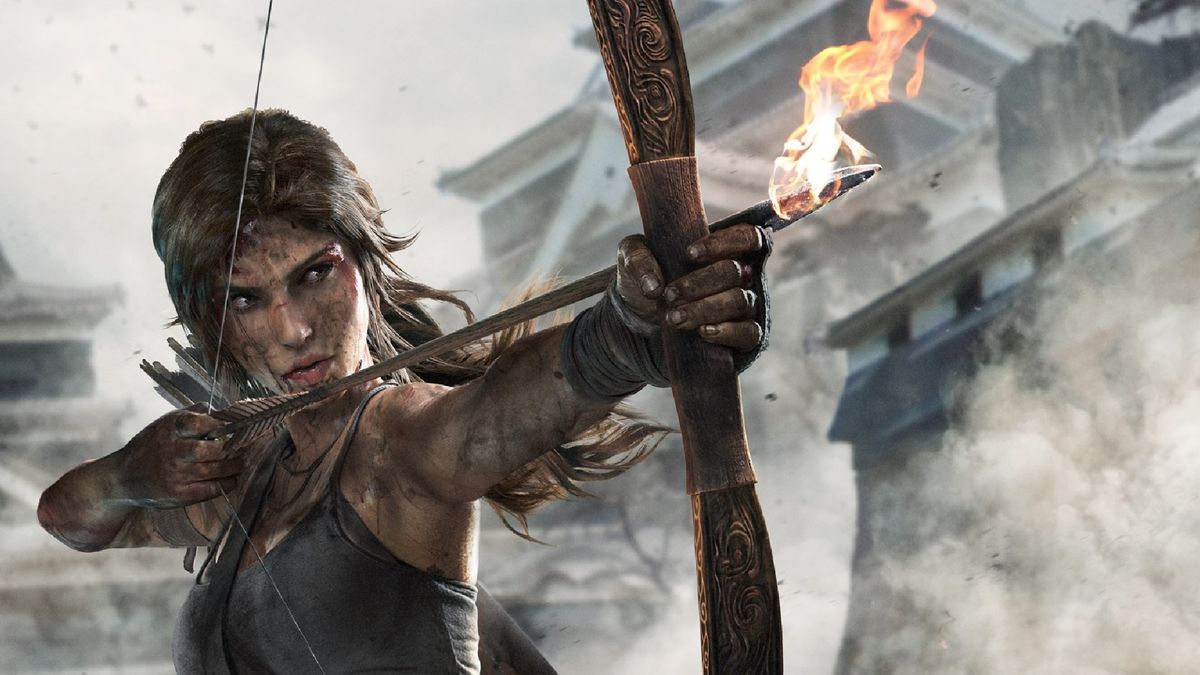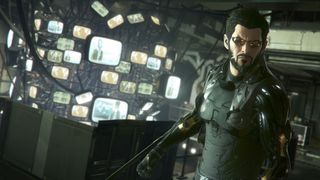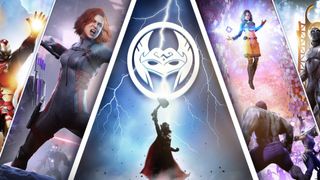Tomb Raider and Deus Ex studios and IP lead massive sale from Square Enix to Embracer Group
Square Enix sheds three overseas studios and multiple large IP for $300 million

Square Enix is selling Crystal Dynamics, Eidos-Montreal, and Square Enix Montreal as well as attached IP including Tomb Raider, Deus Ex, Thief, and Legacy of Kain to Embracer Group for $300 million.
It's worth noting that the newly announced Tomb Raider game in the works using Unreal Engine 5 is indeed included in the sale of Crystal Dynamics. The acquisition also includes more than 50 games from the collective back-catalog of Square Enix's overseas studios.
Embracer Group says it "sees an opportunity to invest" in Tomb Raider and Deus Ex in particular, "as well as the additional acquired IPs such as Legacy of Kain, Thief, and other original franchises." The company explained that mobile specialist Square Enix Montreal, known for spinoffs like Hitman Go and Lara Croft Go, "will continue to develop and operate memorable mobile games based on AAA IP."

A statement shared by Crystal Dynamics and Eidos-Montreal on Twitter reads: "Embracer Group will help propel us to great new heights as we continue to deliver exciting experiences from our beloved portfolio of franchises as well as original concepts and IPs developed with partners."
In total, the three acquired studios represent eight physical offices and roughly 1,100 employees. In a press release announcing the acquisition, Embracer Group confirmed that the all-cash deal is expected to close between July and September of this year.
After this deal, Embracer Group will have "more than 14,000 employees, 10,000 engaged game developers, and 124 internal studios" by its math. The company already owns and oversees THQ Nordic, Deep Silver parent Koch Media, Borderlands creator Gearbox, and several other studios and companies, both in and outside of games. Most recently, it acquired Dark Horse Comics back in December.
Embracer Group CEO and co-founder Lars Wingefors stressed that the company expects to break even or make a small profit from this deal "based on the back-catalog over the coming two years." An accompanying presentation outlining plans and expectations for the acquired studios reckons that their near-term outlook "could change positively if the company decides to enter deeper strategic relationship[s] with one or more platforms."
Sign up to the 12DOVE Newsletter
Weekly digests, tales from the communities you love, and more

Embracer Group's February 2021 acquisition of Gearbox helps illustrate just how staggeringly cheap this deal really is, at least comparatively. Embracer paid $1.3 billion for the Borderlands creator alone, and while Gearbox has more than Borderlands and the relative valuation of these Square Enix properties is complex, snapping up three of the publisher's Western pillars as well as their controlled IP is an absolute bargain for Embracer Group, and this also suggests that Square Enix was very eager to sell.
In a press release sent to investors, Square Enix described the deal as a way to "assist the Company in adapting to the changes underway in the global business environment by establishing a more efficient allocation of resources." It also says the deal "enables the launch of new businesses by moving forward with investments in fields including blockchain, AI, and the cloud."
After this deal, Square Enix's Western portfolio will still include series like Just Cause, Outriders, and Life is Strange under Square Enix External Studios and Square Enix Collective. The future of several other games and franchises, which weren't specifically mentioned but would seemingly fall under the broader back-catalog mentioned in the deal, remains unclear. However, we do know that the Perfect Dark reboot in the works at The Initiative under Xbox will still be co-developed by Crystal Dynamics, per a recent tweet from the former.

In a Q&A addressing the deal, Embracer Group commented on the fate of Marvel's Avengers by Crystal Dynamics and Marvel's Guardians of the Galaxy by Eidos-Montreal, both of which resulted from Square Enix's Marvel license.
"All games that have been developed by the studios are included in the transaction," Wingefors affirmed. "However, a number of external approvals are needed from external parties in order to close this transaction. Potentially, licensors could be one of those approvals needed."
The CEO didn't commit to specifics for either Marvel's Avengers or Marvel's Guardians of the Galaxy, but his response seemed to imply that the two wouldn't immediately be impacted, while the possibility of future Marvel-licensed games is still up in the air.
"I think your question was related to the two existing games and whether they will still be operated and built upon or changed from existing plans today going forward," he said. "I think that is the color I can give you." However, Wingerfors added, "we need to wait until closing, unfortunately, to get more color around IPs and the studios."
Marvel's Avengers is one of many games that Square Enix has said didn't meet expectations.

Austin has been a game journalist for 12 years, having freelanced for the likes of PC Gamer, Eurogamer, IGN, Sports Illustrated, and more while finishing his journalism degree. He's been with 12DOVE since 2019. They've yet to realize his position is a cover for his career-spanning Destiny column, and he's kept the ruse going with a lot of news and the occasional feature, all while playing as many roguelikes as possible.
Most Popular






